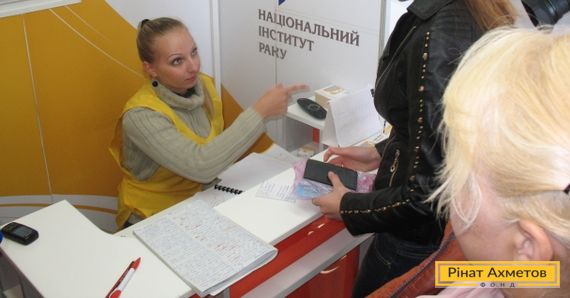Over 500 women examined by Mobile Women’s Health Unit of Rinat Akhmetov Foundation

The Mobile Women’s Health Unit of Rinat Akhmetov Foundation has examined more than 500 displaced women in Mariupol. Launched on 15 October, the facility is part of a cooperation programme between the Rinat Akhmetov Humanitarian Centre and the social care centre of Mariupol municipal council. Every day about 20 displaced and disabled women, including wheelchair-bound patients, take full check-ups to detect reproductive disorders, e.g. mammography screening, a medical examination by a breast physician and gynaecologist and ultrasound scanning.
According to Viktoriya Mykolayuk, Chair of Cancer Can Be Cured project implemented by Rinat Akhmetov Foundation, all internally displaced women and those experiencing challenging life circumstances can anonymously take a free and quality reproductive health examination.
“The Mobile Women’s Health Unit has given a strong social incentive – over the first weeks of the unit’s operation in Mariupol the Rinat Akhmetov Humanitarian Centre’s hotline has taken more than 400 calls from women wishing to take a medical check-up. Fifteen women have been diagnosed with suspected cancer at an early stage. If the diagnosis is confirmed by a follow-up examination, they will undergo a treatment programme, which is 95% effective at this stage of the disease,” added Viktoriya Mykolayuk.
The unit is going to operate at the Mariupol Cancer Centre until 5 December provisionally.
Profile
Mobile Women’s Health Unit is a special 18 metre-long truck designed to European standards for a full medical examination of the reproductive system of about 5,000 women a year. The mobile clinic has two rooms: a gynaecology room with an ultrasound, colposcope and cytological sampling facilities, and a breast care room where women undergo mammography screening.
The co-project of the Rinat Akhmetov Foundation and the National Institute of Cancer has provided medical check-up to 4,423 women since 2012. Tens of women diagnosed with cancer at an early stage have been treated and recovered.


